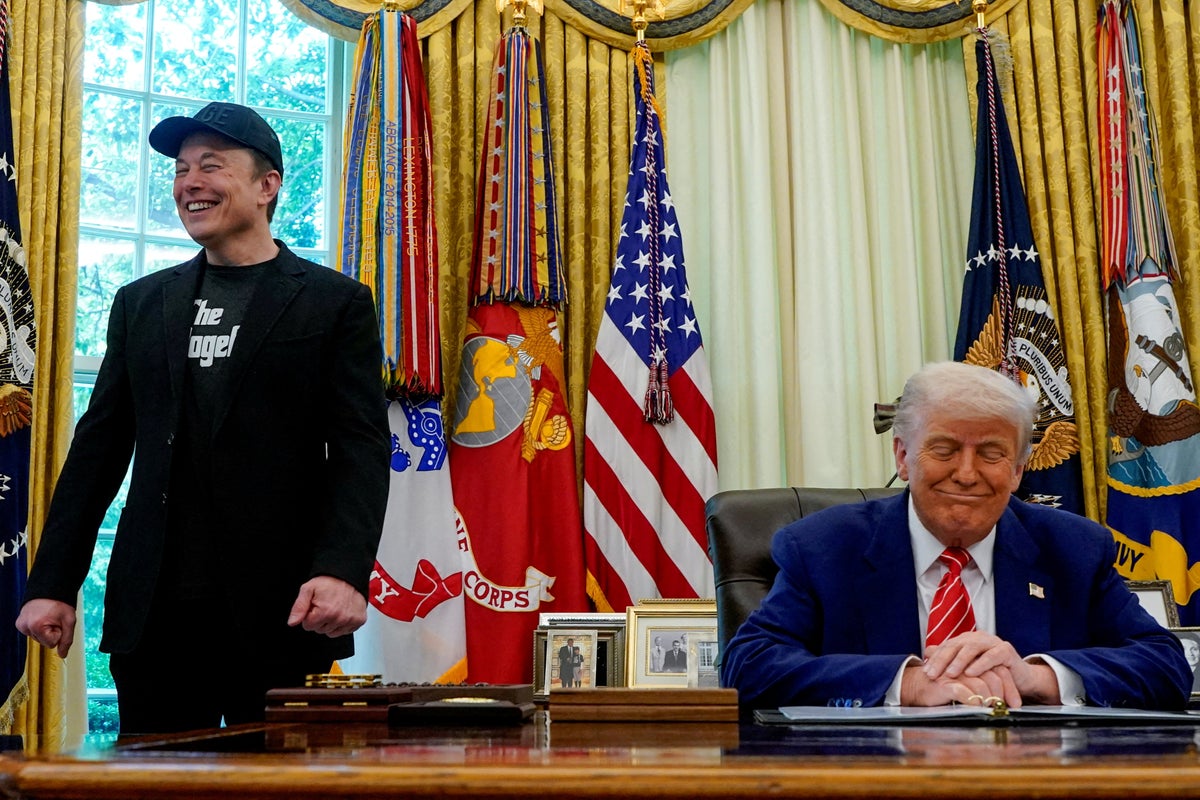Inside Washington: The Debate over Trump’s “Big, Beautiful Bill”
As the Senate gears up for a critical vote on President Donald Trump’s ambitious “Big, Beautiful Bill,” opinions are sharply divided. Elon Musk, one of the world’s wealthiest individuals, has been vocal in his criticism of the legislation, which proposes substantial cuts to spending alongside significant tax incentives. Musk’s assertion that the bill will “destroy millions of jobs in America” illuminates just how contentious this debate has become.
The Legislative Landscape
The bill itself is expansive, encompassing sweeping changes aimed at funding Trump’s tax cuts from 2017. It seeks to reduce spending in various sectors, including healthcare and social safety nets, while bolstering military funding, oil exploration, and immigration enforcement. Released under the pressure of a tight deadline, the 940-page document appeared only hours before critical Senate votes were scheduled to commence.
As Senate Republicans rally support, analysts warn that the bill could balloon the national debt by up to $4 trillion—a concerning prospect as the nation grapples with existing economic challenges. Notably, senators are proceeding with votes even before the Congressional Budget Office releases its analysis, raising eyebrows regarding the urgency and transparency of this legislative process.
Musk’s Lament
Elon Musk’s response has echoed across social media platforms, markedly highlighting the resistance from influential voices in the business community. His declarations that the bill is “utterly insane and destructive” reflect widespread apprehensions about the potential consequences for American industries. Musk argues that it prioritizes outdated sectors while endangering emerging industries vital for future growth.
Medicaid and Healthcare Cuts
A focal point of the bill has become the proposed changes to Medicaid, signaling significant cuts to a program that many rural hospitals and vulnerable populations depend on. By imposing new work requirements on recipients and setting tighter restrictions on how states can raise funds for Medicaid, critics worry that this could dismantle vital healthcare services.
Sen. Ron Wyden, a prominent Democratic voice on the Senate Finance Committee, has condemned the bill as “rushed and reckless,” asserting that it threatens the health and safety of countless Americans. The potential cuts to Medicaid, estimated at $930 billion, underline the severe impact this legislation might have on rural communities and marginalized groups.
Immigration Fund Allocation
Beyond healthcare, the bill makes a substantial allocation of $350 billion towards immigration enforcement—a cornerstone of Trump’s agenda. This includes funding for the U.S.–Mexico border wall and a considerable increase in Immigration and Customs Enforcement personnel. Critics argue that this approach further intensifies an already contentious and polarized debate around immigration policy.
Tax Cuts on the Horizon
Touted as a continuation of the tax cuts enacted in 2017, the legislation proposes making those cuts permanent, effectively extending Trump’s legacy on tax policy. Significant measures include deductions aimed at enhancing the financial situation of workers earning tipped wages and overtime pay.
Changes to Food Assistance
A particularly concerning element of the bill is the proposed changes to the Supplemental Nutritional Assistance Program (SNAP). With advocacy groups warning of severe repercussions, the bill could impose new requirements that severely limit food access for children and vulnerable families. By increasing the work requirements for able-bodied adults and extending them to parents of older children, critics argue that this could have devastating effects on food security in America.
The Road Ahead
With the bill poised for a vote, the challenges ahead are manifold. Should it pass in the Senate, it will return to the House, where opposition is brewing among some Republicans who are wary of the underlying changes. The legislative process continues to unfold, colored by negotiations, criticisms, and hopes, as various factions within Congress advocate for their constituents and challenge each other’s visions for America’s future.
Final Thoughts
As the political battleground intensifies over Trump’s “Big, Beautiful Bill,” one thing is clear: the stakes are high. Whether the bill will pass or falter remains to be seen, but it undeniably reflects the stark divisions within American politics today. The outcome of these debates will shape lives and impact generations, making engagement and understanding more critical than ever.


